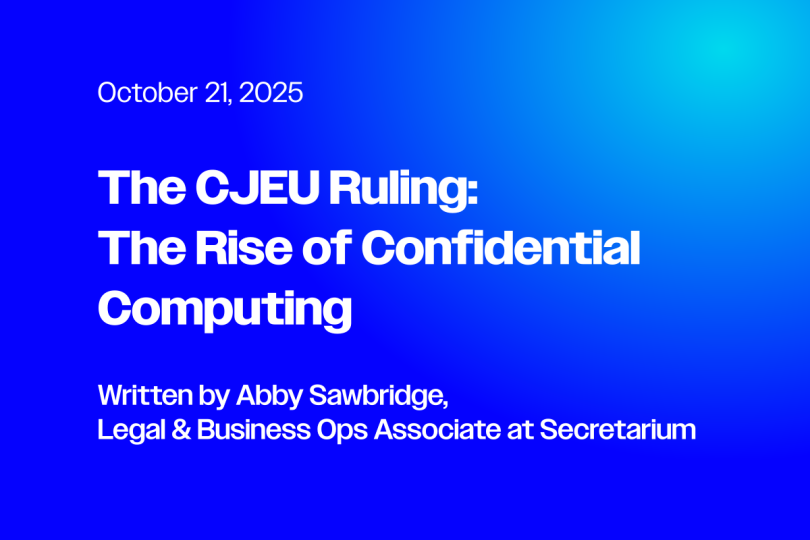Honest Computing
Systems that can't lie: Inside Secretarium's new "Honest Computing" technological solution.
Presentation
A new concept developed by researchers at Secretarium known as "Honest Computing", offers a new way to build computer systems which guarantee demonstrably they operate transparently, reliably and ethically.
This work helps empower policymakers to establish rule-based data protection regulations that are underpinned by robust technical protocols and was recently accepted at the Data For Policy Conference, held at Imperial College London between 9-11 July 2024.
Lead author, Florian Guitton presented the research as part of a session on Technology & Analytics, explaining to an audience of industry practitioners and policymakers how this new technical foundation can enable the creation of auditable and enforceable rules for confidential and private data protection
that can be easily validated.
He said: “This work has been a long time in the making and the technologies needed to build Honest Computing systems have only been accessible commercially for a few years. Systems built upon this framework have the potential to change the way we handle trust-based applications in healthcare, finance, supply chain management etc… with demonstrability of evidence at the core.”

Florian Guitton presented "Honest Computing" at the Data For Policy conference 2024.
Focus on Sustainability
Secretarium aims to emphasise sustainability by advocating for ethical data management practices that not only protect individual privacy but also promote responsible use of resources.
Unlike compute intensive homomorphic encryption or blockchain-like game-theory-based solutions, the Honest Computing framework selects technologies which combine to have a low power consumption and high scalability, rendering the development of applications more sustainable and environmentally friendly.
A Rule-based Technological Solution
Policymakers currently face significant challenges in ensuring that regulations about data protection move away from an abstract, principle-based approach to one that is rule-based and more easily validated.
While principle-based approaches set broad standards for companies or individuals to adhere to, rule-based approaches provide specific and detailed guidelines for clear-cut directives. This means rule-based approaches are often considered more useful in policymaking as they leave little room for interpretation and therefore offer more straightforward compliance and easier monitoring.
Mr Guitton explains: “When we talk about regulating data usage, it is even more crucial that regulations are rule-based in order to provide demonstrable evidence of correct handling rather than a belief-based statement so that we can safeguard any information effectively.”
Secretarium's "honest computing" exemplifies this by creating a framework that ensures a system cannot lie about the data or the algorithms it runs by default and by design.
Developing Honest Computing Systems
Data forms the basis of all scientific, industrial or commercial processes and ensuring the effective management of data, whilst preventing manipulation or unethical practices is of increasing importance.
Secretarium has already taken steps to implement Honest Computing into products available to all. With Klave, the company proposes a fully fledge platform for people and businesses to deploy their honest applications reaping all the benefits offered by Honest Computing. Secretarium is working creatively with its partners to build next-generation infrastructure and understand how to integrate honest computing systems with legacy ones, to protect as many of the guarantees it aims to offer.
Also, with Honest Computing, new types of data research will become crucial, for example in blind data quality checking or visualisation-including data transformation chains.
"Honest Computing: Achieving demonstrable data lineage and provenance for driving data and process-sensitive policies" (Full paper) by Guitton et al., published as part of Data For Policy Conference 2024.
Article text by Gemma Ralton. Images from Data For Policy CIC.
Get in touch
If you want to know more about our technology, please don't hesitate to schedule a free demo with our experts.
Read next
We actively engage in highly innovative projects. Explore our latest publications featuring our cutting-edge technology.



.png)


.png)